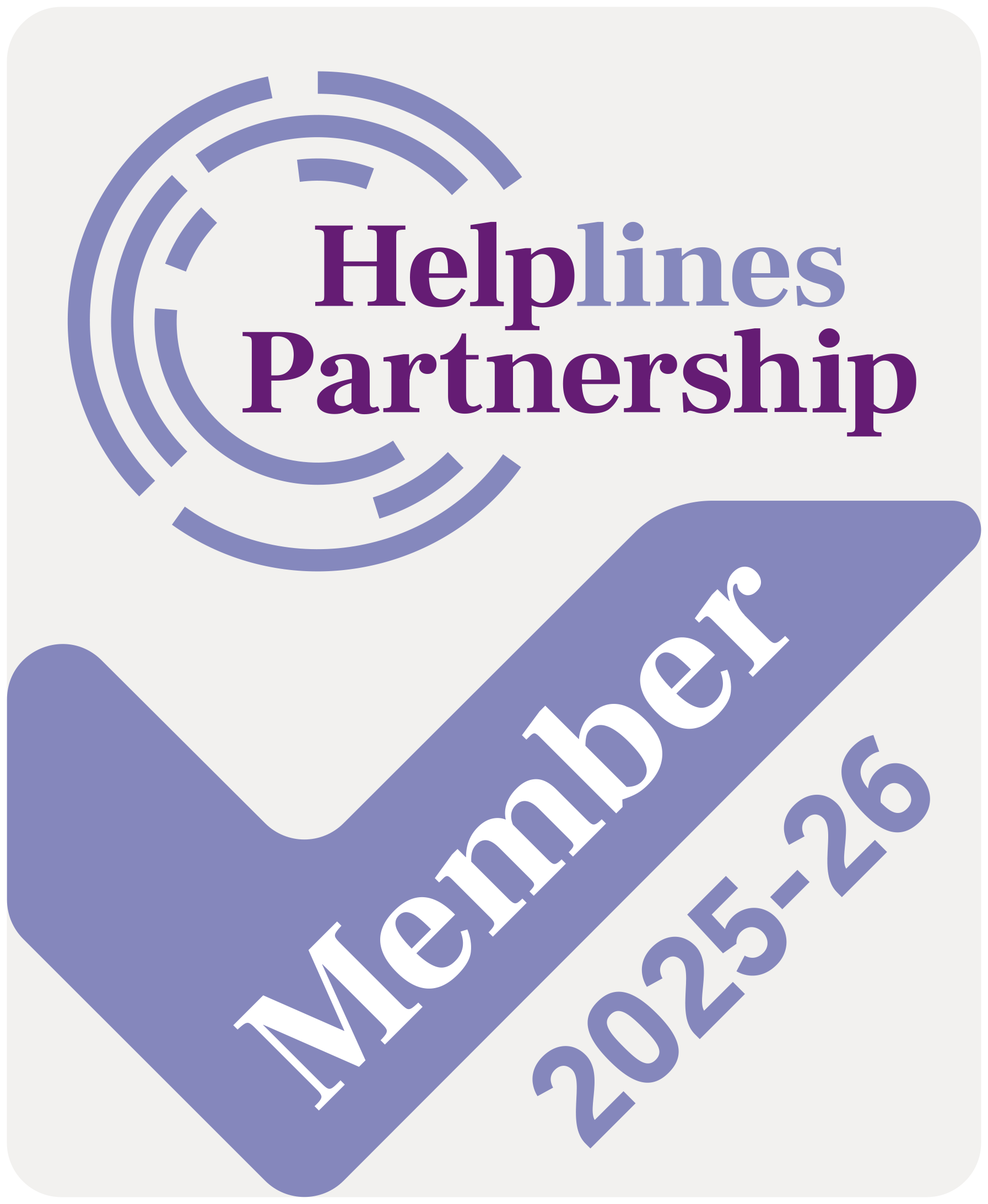There is no official rule book on how to be a parent to a child with special needs.
It’s a life you’re thrown into and you realise pretty quickly it’s one you have to become an expert in.
When your child has complex medical needs, you need to harness vast amounts of dedication and become really good at understanding and talking to “experts”.
So how do you do this, especially when you may feel so overwhelmed that your thoughts are all over the place?
Here are some clues on how to become an expert parent of a child with a genetic disorder.
Get organised
You’re not just a parent, you’re also a full-time case manager.
As well as the usual parental tasks, it may be that you’re having to master complex medical equipment or fight your way through new ‘systems’, on top of maybe having to care for other children and family members.
Think about writing a short case-history of your child’s condition (no more than two pages of A4), including what the condition is, what this stops them doing, and what their drugs protocol is, so you don’t have to constantly explain yourself. Get copies laminated – anything laminated looks more official.
This could help care providers, teachers and even fellow parents to understand what you and your child is living with.
Think of yourself as a ‘life-long student’
You can’t learn everything in a day, but even just re-framing your thoughts and putting yourself in the position of being a ‘life-long student’ will help pave the way towards a more balanced life.
Before you had a child with special needs, you may have been content with what you already knew about life.
But this ‘new life’, this ‘new kind of normal’, means you now need to be constantly learning in order to keep on top of your child’s condition, new treatment methods and new information that’s gleaned about it by experts.
Remember, you are the expert about your child
Take the time to learn everything about your child’s condition.
If you learn about every single one of your child’s conditions, you’ll be a better advocate and be better able to make informed decisions about their health and wellbeing.
A good starting point is Patient UK. You will probably find yourself reading medical studies for the first time – visit PubMed to find relevant studies for your child’s condition.
PubMed comprises more than 22 million citations for biomedical literature from a range of international journals, including The Lancet and the New England Journal of Medicine.
Using information from these sources, you can collate a dossier of your own ‘expert’ information on your child’s condition.
Remember, this is an ongoing job – new studies and information come out all the time.
As well as relevant studies which you’ve printed out, you may also want to create a system for recording symptoms, behavioural patterns and developmental milestones.
Be prepared to educate others
As well as a parent and case manager, you’re also your child’s voice.
As such, one of your jobs is to educate those around you to make the world more accepting of their condition.
If someone approaches you to ask what’s wrong with your child, use it as a chance to educate rather than being defensive.
It could be that what you say will change their perspective. It may sound like an exhausting and never-ending task, but think of what a difference your patience and educating spirit will mean to your child’s life and possibly even outcome.
Every battle is for your child, and therefore every battle is worthwhile.
Become an ‘information chameleon’
Being the parent of a child with a genetic condition means learning how to speak to a wide variety of people from different walks of life.
Understanding the mindset of the person you are talking to will help to strengthen your relationships and accomplish your goals faster.
It could be that some people you deal with pick up more information from you through visual presentations and practical demonstrations.
Others will prefer to be given written instructions they can review in their own time or simply like to be told there and then.
You have to become something of an ‘information chameleon’, changing to suit your audience. Ask them what they would most prefer (if it’s not obvious) and accept that they might have questions.
Remember, you are the expert that many of these people will turn to and as such you’ll need to provide ongoing opportunities for them to give you feedback on how you can continue to work together.
For example, a teacher may want to know if there’s anything new they need to know now that your child is old enough to go on school trips.
Visualise what you need
None of us has a crystal ball so we can’t tell what our child’s needs will truly be as the years progress.
But if you have a list of goals for them – for example at school – this is something that can be worked with and adapted if need be.
When requesting help from school, it might be useful to create a mission statement with a list of goals.
Focus on your child and how you can collaborate as a team to help achieve your child’s goals rather than creating a list of things you ‘need’ from people.
If you are applying for health support services or advocating for your child, prepare a case summary outlining the current situation and the challenges.
Provide a written solution and then ask clearly for what you need. Try to take emotion and blame out of your case summary, as this might weaken your request.
Share the responsibility of caring for your sick child
Everyone has an essential role in supporting your child, from your partner, your friends and your health care team, through to teachers and care providers.
Think about ways to work more effectively with these people and help them be successful in their day-to-day roles in supporting your child, and accept help that they offer.
It can be hard to get your head round the fact that people want to help, especially when you know this isn’t a ‘one-off’ but more of an ongoing situation.
But take offers at face-value – people want to help. One way to keep people on board is to always focus on your child rather than what you ‘need’ from everyone.
Get personal
It may seem that every task you try to accomplish involves working within the limits of several complex systems – and trying to get things sorted leaves you wanting to bang your head against a wall in frustration.
But remember, it is people who are often the key to what feel like impersonal systems.
Going out of your way to be nice to the people you are working with will help you reach your goals faster.
Learn the full names of everyone who is helping you.
Request meetings in person or speak to them on the phone and then follow up with an email to make it easier for people to refer back to your conversation.
Equally, go out of your way to give heart-felt thanks when someone has really made a positive difference to you and your family.
Look after yourself
Coping with your child’s illness as a parent requires you to take care of yourself.
Letting go of the guilt and allowing time to rest and recharge your batteries is easier said than done! But you must schedule downtime, even if only for 15 minutes per day, and get into the habit of allowing other people to help you in times of need.
Believe in yourself
You may have times (and these may be often) when you feel like you’re sinking under the weight of everything that needs to be done.
But it’s worth remembering that in spite of this, your child is actually thriving.
Take a moment to remember that you are awesome, succeeding in the face of a multitude of problems.
Taking time to take stock should give you confidence in what you are doing.
If you have one of those days when you think, ‘I can’t do this’ (and remember, we all do), remember how fantastic you are. It’ll help you to realise you can do it and you’re the best person for the job. It may be hard but it’s important to believe in yourself.
Find like-minded people
When things go wrong, whatever the situation (perhaps your child’s condition has taken a turn for the worse or perhaps their ill-health is putting your relationship under strain), there’s nothing like reaching out to like-minded people.
Support groups for your child’s condition can offer a vital lifeline, a place where you can vent, a place where people simply ‘get it’ without you having to explain yourself.
If there isn’t an established support group, start up a support group on Facebook to enable you to reach out to others and make those connections.
You may find that some of your closest friends will end up being people you have never met. You may also find that you join several Facebook groups where you can go for advice and ideas to help you to be a better advocate.
Be assertive
When you first heard about your child’s condition, it’s likely you were in shock and didn’t know how to stand up for your rights.
But as time goes by and you endure appointment after appointment, seeing one doctor after another, explaining yourself time and again, you will probably be starting to feel more assertive and feisty about things.
Use this emotional energy to help you get what you want or need for your child.
Are you waiting for test results or do you feel that a test should be carried out that hasn’t been? Ask for it!
Don’t worry that people might think you’re being fierce or obnoxious – remember, the squeaky wheel gets the oil. And besides, who knows better about your child than you?
Be prepared
Any good doctor will understand that parents will doubtless have a multitude of questions about their child.
Some of them may dread it but that’s life – you’re bound to want to know what’s going on and it’s their job to help you get the answers.
Make their job a little easier by putting these questions down on a list so that you’re managing their expectations.
It will also help to ensure you get all your questions answered, either there and then or at a later date if the doctor needs to get information from elsewhere.
Stick to an amazing doctor like glue
It may be that you’ve spent months or even years going from pillar to post, seeing one doctor after another, having to explain time and again what’s going on with your child. Then, if you’re lucky, you meet a doctor who knows the condition, wants to understand what’s going on and really seems to be rooting for you all. Stick with them! If you find yourselves in A&E, ask for them to contact this doctor for further information about your child (some doctors will even give you their mobile number so you can contact them yourself in such situations). Cultivate this relationship – it’s likely to be the difference between illness and wellness in your child.
Remember doctors aren’t gods
You may feel like you have to go by the doctor’s orders entirely. Of course on the big issues, this is no doubt the best thing to do (NB this doesn’t mean you can’t challenge and discuss things with them!). But what about the small stuff?
You’re the one who lives with your child and their condition, day in and day out, so your observations about little ‘tweaks’ might be more pertinent to your child.
For example, if you feel that adding something or taking something out of their diet makes them more comfortable, then don’t be afraid to do it.





